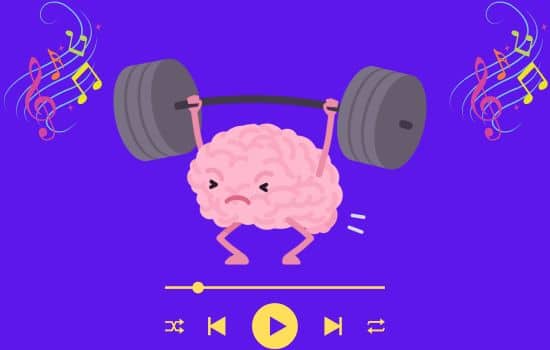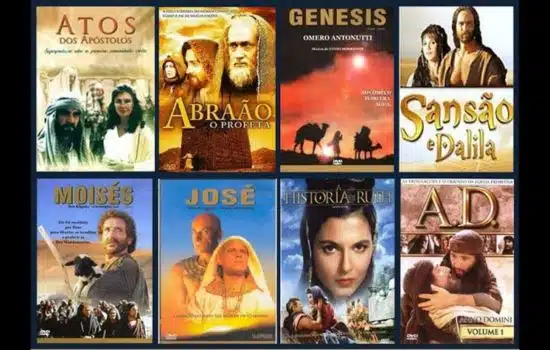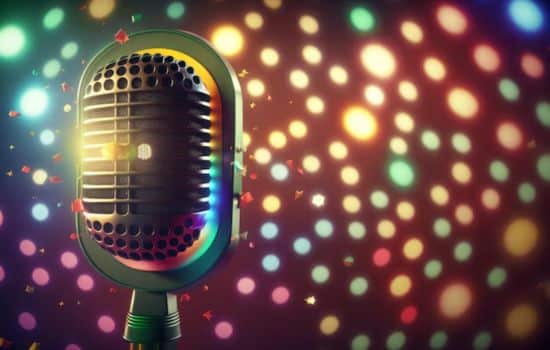Advertisements
The topic in question is about music and its memories, as music has a profound capacity to evoke powerful memories.
Its power to evoke images of past melodies, beats and inegável lyrics.
Advertisements
Each music carries its own personal meaning and can once again trace vivid memories of moments that may have been cut short.
There are no limits when it comes to the emotional range that music can evoke, from sadness to joy, any emotion can be evoked by hearing familiar music.
Advertisements
As Ciência explains that we never lack some music
Did you hear some music and was instantly taken back to a moment in time?
It could be the beginning of a summer romance or that special night on the beach.
As science explains, we never sketch some music because they are too emotionally embedded in our memories.
In fact, research shows that music manages to evoke emotions more quickly and intensely than any other stimulus.
SEE ALSO
Music is deeply intertwined with everything, from childhood memories to our emotional reactions to adult life.
Scientists believe that this happens because music involves several regions of the brain simultaneously.
Connecting music to auditory sinuses with areas associated with emotion, memory and reward processing.
When we hear certain music, it triggers powerful emotional responses that can have such a great impact that it also nullifies our conscious effort to suppress them.
Motherly music
Music has a powerful effect on our most formative memories.
From children's songs to a mixtape of a first love, music manages to evoke vivid and lasting emotions.
In no place is the most true that with maternal music.
Most of all, we use old songs as a way of transmitting stories, knowledge and comfort between old people.
Maternal music helps children raise connected strengths with their mothers, building trust and emotional security through sleep.
It is also an effective tool to transmit culture.
The country can use songs in a language that we grow to help teach our children about their heritage without needing to leave home.
In this way, these songs become tools of knowledge and partilha of experiences that cross cultures and ages.
More Venezuelans who live in Brazil, play music for their children, know the roots of their country.
Favorite Music
Music is the way to unite us, create memories and connect us like the past.
There is no surprise that your favorite music may be some of our most precious memories.
Each person has their own sound trilha, full of music that traces back and forth special moments into life.
It is the first music in a house or the one that you share with your first love, the music can evoke strong emotions and nostalgia.
For many, favorite music is associated with significant events in life: a formative festival, an ancient trip or just a moment of reflection.
Our favorite music can also cheer us up when we need it most, when we feel depressed or when we need something to smile.
Music never fails to unite people and members because they love certain music so much.
Music goes with your voice at the end
The power of music is inegável. This was exemplified when a video went viral of a blessed lady.
He was deeply moved after hearing Pyotr Ilyich Tchaikovsky's iconic ballet piece, 'O Lago dos Cisnes'.
She was seen sitting on her chain with tears running down her face, and it is easy to understand why such a powerful moment touched thousands of people around the world.
On the chain of Rhodes, like the dated eyes, as a light is evoked, there are movements of balls with my souls.
It was as if it were held in front of a crowded auditorium. After hearing the music, she seemed to dance, transparent on her face.
But in reality she was in a nursing home. Her name was Marta González, and she had Alzheimer's.
As a young woman, she had studied in Cuba and had not learned about those beautiful movements of Swan Lake, despite her progress in the art.
The lights are activated to hear music.
As this happened, are two localities most affected by Alzheimer's and the frontal lobe, do you have lembrances?
“This is something we are still not sure about. Or that we could say that music is key to many memories that are still in our memory, causing us to suffer from a degenerative disease,” explains Amoruso.
Meanwhile, no music can be used to treat people affected by senile dementia or Alzheimer's.
“It cannot be said with certainty that music is the last thing we outline. Many patients with Alzheimer "Don't reage the treatments with music," says Zatorre.
However, the specialist points out a difference: listening to music for the patient means better results.
“The link between music and memory has a high emotional level. Many of these patients access these memories thanks to music. “In truth, sometimes, it is the last resort to access these memories,” notes Amoruso.
For these specialists, Zatorre and Amoruso, music was also a fundamental element to cope with confinement.
Maybe it's as if we were born in 2020 in the context of the coronavirus pandemic, the most played music of the time, was on the Terra parou.
Because music was like a transcription of everything we spent in the era.
“Many patients that I treated confessed to me that neither sex, nor food, nor alcoholic beverages helped very much to deal with confinement and the circumstances that led us to live in a pandemic,” Zatorre said.
“A majority indicates that music has been his greatest ally. That is a way of thinking about what is happening. And I am certain that many memories were created from this combination.” The connection between music and our memories is an integral part of the human experience.
As we grow older, we often turn to the tune so we hear certain melodies, happy or sad, helping us understand the present.
In this way, Fornecendo-nos uma janela for the world that never existed.

Benefits of music memories
Music has always been a powerful tool to evoke memories.
For many people, the songs are intrinsically linked to memories of their past, providing an emotional connection with nostalgia.
It's music you played during an important event or just something you heard on the radio every day as you grew up.
Music and memories can have a lasting impact on our lives.
The benefits of musical memories can be seen in various aspects of life.
Therefore, it is not only capable of taking us back to certain points in time and helping us process the emotions of our childhood.
But it also helps shape our personalities and create comfort in times of distress.
Music is known to increase physical and mental health, as well as increase self-awareness and creativity.
A Música e Suas Memórias: An Unspeakable Connection
Certainly, music has the power to awaken deep memories.
Além disso, its melodies transport us to special moments, releasing dormant emotions. Initially, it connects people and cultures, creating universal ties.
Subsequently, each song becomes a tempo marker, eternalizing experiences.
Therefore, we heard a melody and relived remarkable experiences, such as loves, friendships, or unusual trips. Furthermore, music is a refuge on difficult days, bringing comfort and joy.
Consequently, it becomes part of who we are, comprising our identity. Therefore, its presence in life is indispensable.
Finally, musical memories remind us that each note carries a unique and special story.




